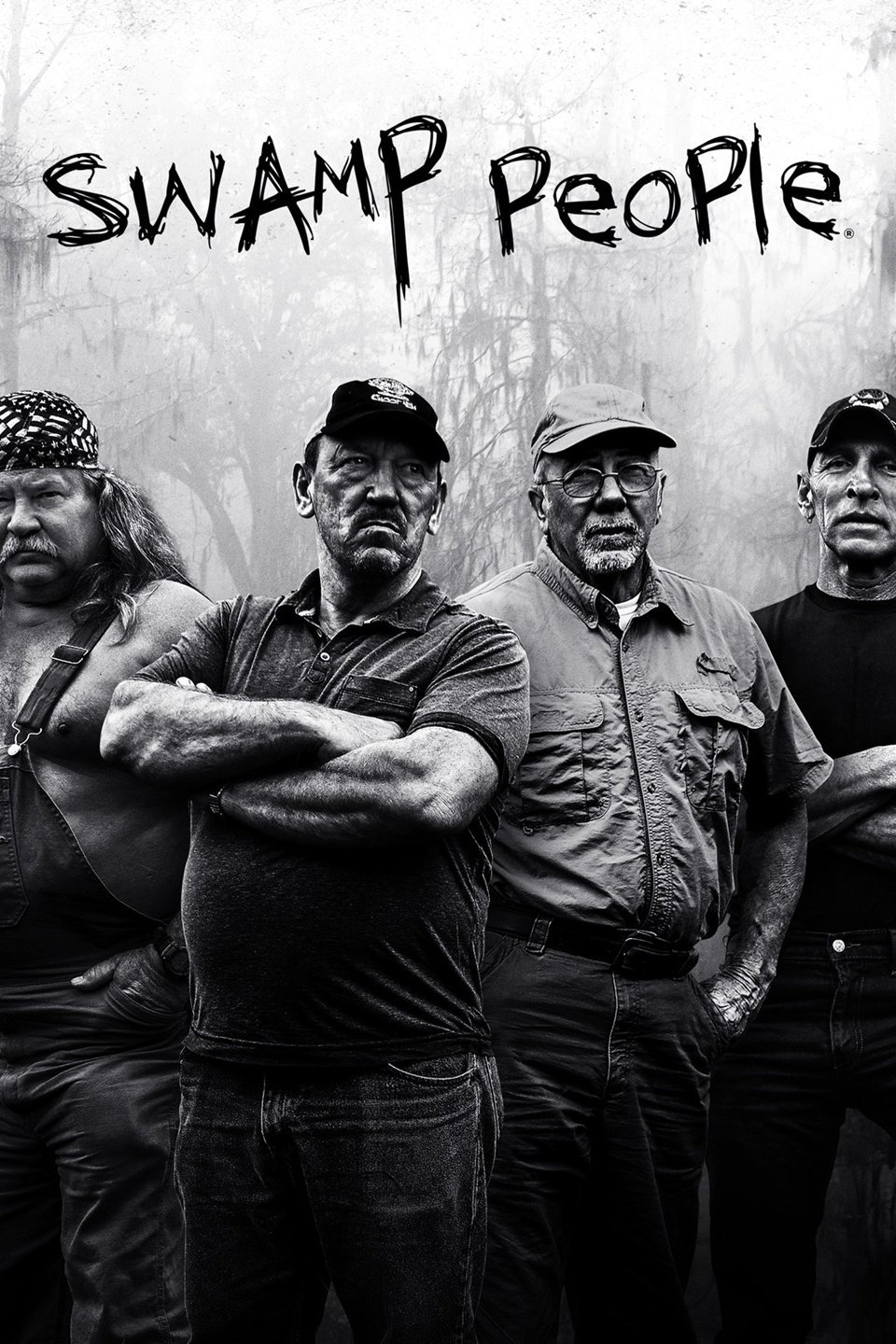
I watched Swamp People about 8 years ago and was amazed at the show featuring English-speaking Bayou folk requiring subtitles because of their heavy accent.
The show features a real cast of characters:
- Troy Landry – the King of the swamp, and his sons Jacob and Chase
- RJ and Jay-Paul, a father and son from the Houma tribe
- Willie and Junior
- Daniel and Big T (I mean BIG)
- Bruce with the overalls and no shirt (you cannot “unsee” that)
And also includes some fascinating life lessons:
- father and son fights and then caring and supporting each other
- neighbours helping neighbours
- family squabbles and then having to count on each other
- fighting the elements – storms and droughts
- trying to “tag out” (catching enough alligators to fill all their tags)
- managing and respecting their resources – they use everything that they catch
- having family and friend feasts and thanking the Lord and each other
- etc
I was flipping channels during a commercial of a recent Jets game and the show description for the current season of Swamp People caught my attention. The hunters, AKA The Cajun Cartel, were convening a meeting to discuss the future of their livelihood.
It is now a reality that farm-raised gators were what the buyers of skins now wanted. Wild alligator skin prices dropped through the floor. This hunt was always a major part of their yearly income that was supplemented with less profitable crawfish trapping and guiding activities.
What to do? Their heritage going back generations was being threatened.
What happened next surprised me. They looked at where the real value of the alligator was – the meat. The buyers just wanted the hides but the meat was worth three times the price of a hide. Instead of just $100 for an 8 foot gator hide they could also get $300 for the meat.
Then they looked at all their individual skills and resource inventory:
- one guy had a facility to do the skinning
- one guy was an expert at cutting meat
- the others could hunt in their areas and bring the meat fresh each day.
They knew there was a market for gator meat. They even knew their positioning – Fresh Meat Every Day!
The focus and discipline to get the job done that first day of their new cooperative venture was a portrait of hard work. They looked upstream of the problem (price of a wild alligator hide) to search for a new solution (gaining money from a new source out of existing alligator inventory).
You may think this is funny and simple. While the characters are funny, the reality the Cajun Cartel faced is something that every company needs to understand:
- Your customer one day may select your competition the next day – and you did nothing wrong!
- Any industry can be disrupted – do you really think you are invincible?
- The Cajun Cartel knows their customer and what they value – and they delivered a positive surprise.
- You may think your strength is your people – faced with a catastrophic blow to your income, will your employees adjust with new thinking or expect someone else to save them and the company?
- Look at your competitors – can someone be a partner so together you are stronger?
- Is someone in your value chain capable of a complete vertical integration that wipes you out?
- Is someone in your value chain perceptive enough to broaden their opportunities through horizontal integration? How might that impact you?
Vigilance is the key. I wrote a post last November about Marketing muscle and PESTLE and the need for a continuous understanding of what is happening in your company and industry and with your operating environment. You need to capture the right information so that you can validate that your operating assumptions are still accurate and that your chances of being blind-sided are not high.
“Choot Em!”, says Troy Landry, king of the swamp, when he has a gator hooked.
You best load up and get ready in case something is lurking close by that just might take a bite out of your business. You want to be the disruptor and not the one being disrupted.
About the Author
Tim Kist is a Certified Management Consultant (CMC), whose certification was obtained through a combination of experience, examination and continuous professional development. With over 20 years of senior industry management, combined with nearly 8 years in management consulting with national firms, Tim brings together extensive experience, objectivity, and front line leadership. As a national athlete and current university football coach, Tim lives and understands the evaluation, preparation and game planning required for successful high level individual and team performance. He has successfully brought this coaching approach to his work teams throughout his leadership career. Read More
--
A version of this post was first published here.
